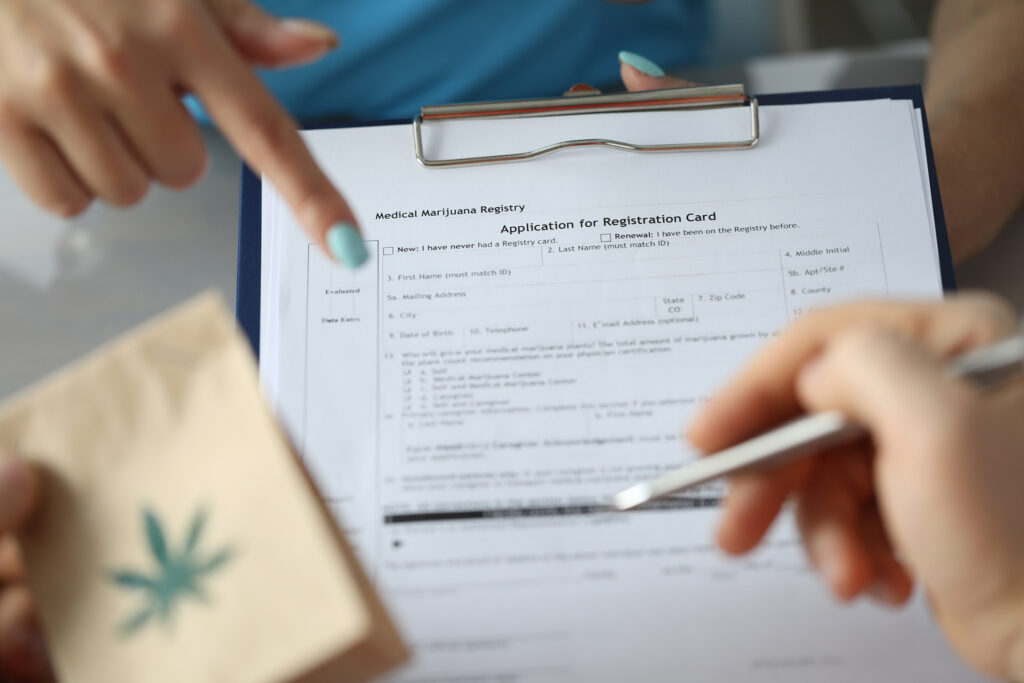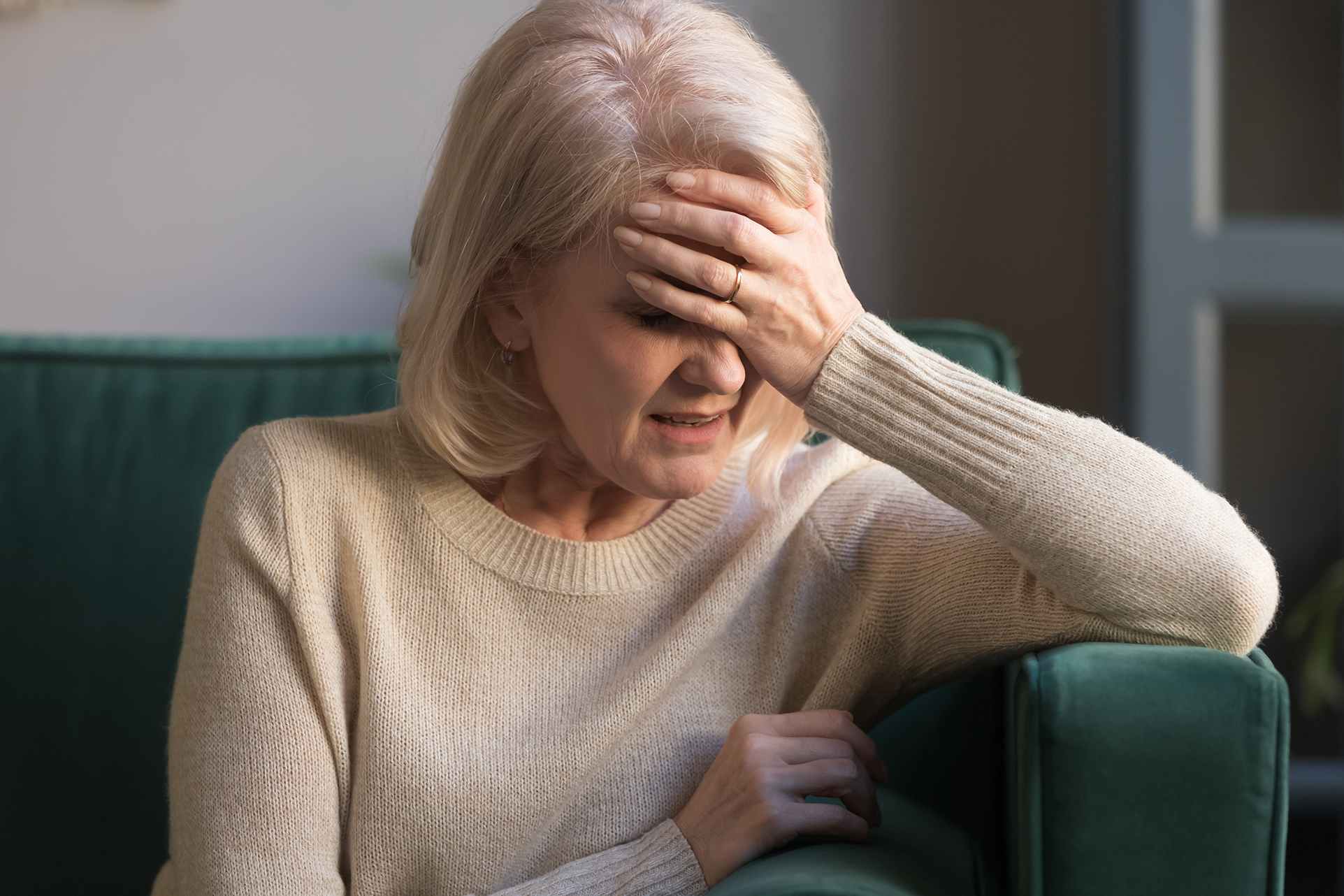When medications aren’t enough, medical marijuana may be an option
Are you experiencing chronic pain or another condition that medications alone haven’t been able to treat? Medical marijuana may be a reasonable alternative to try.
Mark D. Baker, D.O., a board-certified family medicine and osteopathic manipulative therapy specialist at West Grandview Primary Care, shares some insight below on how medical marijuana works.
How do I know if medical marijuana is an option for me?
Do you suffer from chronic pain, anxiety, post-traumatic stress disorder (PTSD), neuropathy, or multiple sclerosis? These are a few of the most common conditions people in Pennsylvania have used medical marijuana to treat.
Altogether, 23 health conditions qualify in Pennsylvania for medical marijuana as a treatment. It’s not a first-line approach, but it can help. A complete list of all qualifying conditions can be found at medicalmarijuana.pa.gov.
Treatment can come in various forms such as inhalation or vaping, oral capsules or tinctures (extracts placed under the tongue), topicals, and more. This allows for a wide array of options patients can choose from when deciding on treatment.
You don’t need to be afraid to mention this treatment option to your family doctor or specialist. If he or she is a certified physician eligible to approve you for medical marijuana treatment, there’s no need to look any further. If he or she is not certified, the physician can recommend a certified medical marijuana physician and express any concerns with you beforehand. You can also reach out to a certifying doctor directly with any questions you may have about medical marijuana treatment.
Medical marijuana products are all pure, grown and produced in Pennsylvania, and you can be assured there are no foreign additives. This plant-based product undergoes extensive laboratory testing for its purity and potency to ensure its safety.
What is the process for selecting medical marijuana as a treatment option?
First, see your primary care physician and ask for a referral to see a medical marijuana certifying physician, or set up an appointment with a certifying physician directly.
Next: Register at medicalmarijuana.pa.gov. It will take about five minutes.
-
- You will need an email address to register because that is how the state will contact you. If you do not have an email, you may want to ask one of your family members if you can use their email address.
Once you register, you can see a medical marijuana physician who can certify you with a qualifying condition. Records may be required.
-
- Family doctors can provide records to verify the qualifying condition and refer you to a medical marijuana physician.
- You can bring your records to a medical marijuana certifying physician.
Once a medical marijuana physician certifies you, you will pay a fee to the state before receiving a medical marijuana card in the mail, which is good for one year. It is NOT covered by any insurances.
-
- One thing prospective medical marijuana patients should be aware of is expected costs.
- You can expect to pay an annual fee ($50) to the state for your medical marijuana card. Sometimes people on Medicaid or income limitations can receive assistance.
- The cost for the initial medical marijuana physician consultation will range from $150 – $225. Follow-up fees are also involved.
- The average person on medical marijuana spends $100 – $150 per month on product.
- One thing prospective medical marijuana patients should be aware of is expected costs.
When you receive your card, you can call a local dispensary (there are four in the Erie area) and request an appointment with a pharmacist – which is free of charge. The pharmacist recommends the product; a budtender dispenses it. Be sure to take your list of other medications with you to discuss with the pharmacist.
-
- A medical marijuana physician fills out a form that can include a recommended treatment type, but most often they will leave this up to the pharmacist at the dispensary.
- Stay with a type of product you like for best results.
- Some dispensaries have a pharmacist on site; others have on-demand pharmacists via telehealth, but all dispensaries are required to have a licensed physician or pharmacist available during regular business hours.
- Many employees at a dispensary are on the product themselves, so they are familiar with the products; however, medical marijuana physicians recommend that patients meet with a pharmacist. You can call or email the dispensary to connect with the pharmacist and talk about finding the right product.
- You must go into the store by yourself, and you must be the one who picks up your medication. You are not permitted to send someone on your behalf unless that person is a registered caregiver and possesses a caregiver card received with a background check.
- You must use only cash or debit card to make your purchase in the store.
You only have to see a medical marijuana physician annually, to renew your certification card. The large majority of patients renew their card annually to continue medical marijuana treatment.
You may not take your medical marijuana out of Pennsylvania or purchase it out of state.
How are the doses of medical marijuana determined?
Doses for a 30-day supply are different for every patient. This is why the medical marijuana physician verifies the conditions, and why you should take your list of medications to the pharmacist. The pharmacist will know how to help you and decide what it best for you.
It could take as little as 30 minutes for any one medication to take effect, but it could take up to several weeks to find the right product for optimal relief. One thing to note is these products do contain THC and can impact your cognitive function depending on the dosage and frequency of use. All novice patients are started at a low level of THC and slowly increase if necessary until they experience relief.
There are different strains and strengths of medical marijuana: some are energizing, some can help with pain, and some can help you sleep. Some patients use one product during the day, and a different product at night to help them sleep.
Vaping, inhalation, and sublingual (under the tongue) are the quickest ingestion types, and effects can be felt within minutes. If you take an oral form, you should be careful because the effects can be delayed several hours.
What are the benefits of medical marijuana?
Medical marijuana can potentially take patients off medications such as opioids, sleeping pills, and anxiety medications.
-
- The dose can at least be reduced or even supplemented, or an alternative can be offered to these medications. Some people don’t want to use an opioid they could potentially become dependent on, so medical marijuana is a good option for them.
- No medications should be discontinued in any way without the input of your prescribing physician.
Medical marijuana has been known to aid insomnia, too. It’s not a direct indicator to help with sleep, but many people report it as having helped.
Side effects of medical marijuana are mild — with the most common ones being cough, dry mouth, and increased hunger — so it is well tolerated.


